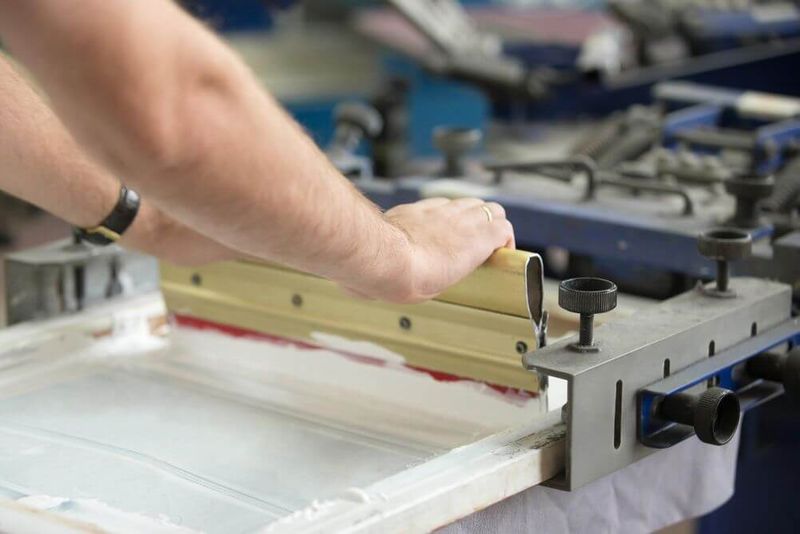From Thread to T-Shirt: The Step-by-Step Process of T-Shirt Manufacturing
Thu Jan 01 1970

T-shirts are wardrobe staples, but have you ever wondered about the intricate journey from thread to a wearable masterpiece? The process involves precision, creativity, and adherence to stringent quality standards. In this comprehensive guide, we’ll delve into each phase of T-shirt manufacturing, ensuring that every step reflects our brand’s commitment to excellence.
Introduction: The Art Behind the T-Shirt
Every great T-shirt starts with a vision and ends with a product that resonates with its wearer. At our brand, we emphasize quality over quantity. From selecting premium threads to ensuring ethical production methods, the journey is as much about artistry as it is about craftsmanship.
Whether you're curious about how T-shirts are made or seeking inspiration for your own brand, this guide will walk you through the process with clarity and enthusiasm.
Understanding T-Shirt Manufacturing
Why Quality Matters in T-Shirt Production
Quality is not just a benchmark; it’s a promise to the consumer. High-quality T-shirts:
- Last longer, maintaining their shape and color.
- Offer superior comfort, enhancing the wearing experience.
- Reflect the values and ethics of the brand.
Step-by-Step Process of T-Shirt Manufacturing
Sourcing Premium Raw Materials
The foundation of a great T-shirt lies in the raw materials. Cotton, polyester, or blended fabrics are selected based on the desired texture, durability, and sustainability goals.
- Organic Cotton: Soft and eco-friendly, perfect for premium lines.
- Recycled Polyester: Ideal for eco-conscious customers.
- Blended Fabrics: Offering a mix of comfort and durability.
Spinning the Yarn
The chosen fibers are spun into yarn, a process that determines the softness and resilience of the fabric.
- Combed Cotton: Ensures smoother and stronger yarns by removing short fibers.
- Ring Spinning: Adds strength and a touch of luxury to the thread.
Knitting the Fabric
Once the yarn is ready, it's transformed into fabric through knitting. Techniques like jersey knitting are widely used for T-shirt production to create lightweight, breathable material.
Dyeing and Finishing
After knitting, the fabric undergoes dyeing to achieve vibrant and lasting colors. The finishing process adds qualities like:
- Softness: For a luxurious feel.
- Moisture-Wicking: Perfect for activewear.
- Shrink Resistance: Ensures durability after washing.
Cutting the Fabric
Cutting is a critical stage where patterns are designed and placed to minimize waste. Advanced technology like CAD (Computer-Aided Design) ensures precision.
Stitching and Assembly
Sewing machines bring the pieces together, creating seams and hems with care.
- Overlock Stitching: For strong and clean edges.
- Flatlock Stitching: Reduces bulk, perfect for athletic T-shirts.
Quality Checks at Every Stage
Our commitment to quality includes rigorous checks:
Ensuring even stitching.
Testing fabric strength.
Verifying color consistency.
Printing and Embellishments
T-shirts become canvases for creativity with designs, logos, or messages.
- Screen Printing: Best for bold, durable prints.
- Direct-to-Garment Printing: Ideal for intricate designs.
- Embroidery: Adds a touch of elegance.
Packaging and Distribution
The final step involves eco-friendly packaging to align with our sustainability goals. T-shirts are folded with care and sent to stores or directly to your doorstep.
Our Commitment to Sustainable T-Shirt Production
Sustainability is at the heart of modern manufacturing. From using renewable energy in factories to sourcing organic materials, we strive to minimize our environmental impact.
Why Choose Our Brand?
We don’t just create T-shirts; we craft experiences. Here’s what sets us apart:
- Premium Materials: Only the best for our customers.
- Ethical Practices: Fair wages and sustainable production.
- Innovative Designs: Timeless yet trendsetting.
FAQs
How long does the T-shirt manufacturing process take?
The timeline varies, but from raw materials to a finished product, it typically takes 4–8 weeks.
What’s the most durable T-shirt material?
Combed cotton is a favorite for its strength and comfort.
Is screen printing better than direct-to-garment printing?
It depends on the design. Screen printing is great for bold, long-lasting prints, while DTG excels with intricate artwork.
How do you ensure quality in mass production?
We conduct quality checks at every stage, from yarn spinning to the final inspection.
Are organic T-shirts more expensive?
Organic T-shirts may cost slightly more, but they offer unparalleled quality and are better for the environment.
Do you offer custom T-shirt designs?
Yes, we specialize in bringing your unique ideas to life through our custom design services.
Conclusion: The Perfect T-Shirt, Every Time
Creating a T-shirt isn’t just about assembling fabric; it’s about delivering a product that embodies quality, sustainability, and style. From the raw threads to the finished masterpiece, every step reflects our commitment to excellence.
Whether you're buying for yourself or considering launching your own line, understanding the process of T-shirt manufacturing ensures an appreciation for the craftsmanship involved. With us, you’re not just getting a T-shirt; you’re getting a story of passion and dedication.